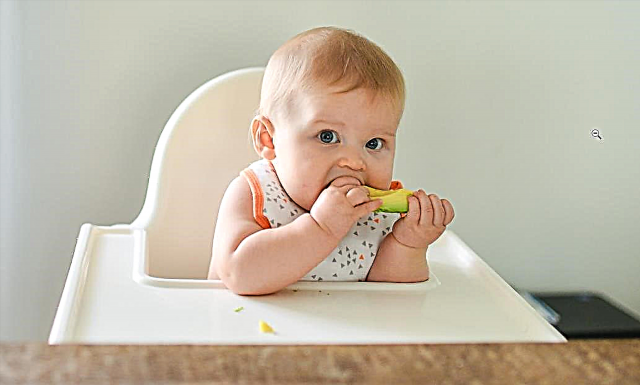
Changes in urine tests of children are not always associated with diseases. For example, salts found in urine can only indicate changes in the child's diet. However, it happens that the analysis indicators help to identify rather serious pathologies. Are salts such as urates dangerous and why can they appear in a child's urine?
What is it?
Urates are one of the types of salts that are detected during a general urinalysis. These salts are formed from uric acid, which is combined with potassium or sodium. They are usually found in acidic urine.
Amorphous urates
This is the name for unformed salts, which give the urine a pink-brown hue. Normally, this type of urate is determined in a single quantity. Excessive appearance of amorphous urates is possible with urinary stagnation, glomerulonephritis, fever, or renal failure.

When to worry?
When urates are identified during repeated analysis (including after changes in the child's nutrition), and their number is marked with three or four pluses, this is an indication for a deeper examination of the baby.
Are there any additional symptoms of the disease?
In most cases, there are no clinical manifestations of urate excretion in the urine, and salts are determined only in the analysis. Only a change in the color of urine can cause suspicion.
If this type of salt has accumulated so much that it caused the formation of stones, then the child may develop a urinary tract infection or blockage.
With an excessive accumulation of urate in the urinary tract, a child may develop:
- Sleep disturbances;
- Hyperactivity and mobility;
- Accelerated development;
- Refusal to eat;
- Constipation;
- Reddish spots on the skin;
- Vomiting in the morning;
- Asthmatic attacks are possible.

Possible reasons
The most common factors causing an increased excretion of urate in a child's urine are:
- Changes in nutrition (excess in the diet of meat, fish dishes, cheese, tea, tomato, chocolate).
- Recently suffered illness in which there was a fever, vomiting or diarrhea.
- Poor blood supply to the kidneys.
- Insufficient fluid intake into the child's body, as well as waste with increased sweating, during vomiting or diarrhea.
- Taking medications (usually antipyretics or antibiotics).
- Infectious diseases of the urinary tract.
- Gout (rarely occurs in childhood).
- Leukemia (some types).
- Hereditary tendency.
- Starvation.
- Helminthic invasion.
Treatment
Diet is the basis for the therapy of excessive excretion of urate in children's urine. If the examination has determined the presence of calculi, the doctor will prescribe medication.
The child, depending on the clinical manifestations, will be prescribed anti-inflammatory drugs, diuretics, analgesics. In some cases, you have to resort to different methods of crushing stones.

Diet
The therapeutic diet prescribed for babies with uraturia is number 6. The diet of a child whose urine contains a lot of urates should not contain:
- Broths;
- Canned food;
- By-products;
- Fatty fish and meat;
- Chocolate.
You will have to limit products such as:
- Lean fish;
- Spicy dishes;
- Salt and spices;
- Bean dishes;
- Onions, cabbage, spinach.

The diet of a child with a high concentration of urate in urine should contain:
- Dairy;
- Pasta;
- Dishes from cereals;
- Rye and wheat bread;
- Vegetarian soups;
- Potatoes, cucumbers, bell peppers, eggplants, pumpkin;
- Eggs;
- Pears, apples, citrus fruits, grapes, figs, gooseberries, bananas;
- Sweet dishes;
- Nuts;
- Dried apricots and other dried fruits;
- Jam, marmalade.
Drinking plenty of fluids will help speed up the elimination of salts from the child's body. Give your child regular and mineral water, juices and fruit drinks.
If changes are detected in a nursing baby, a nursing mother should follow the diet.

Possible complications
Prolonged excretion of large amounts of urate is dangerous, primarily by the risk of stone formation and the development of gout. If stones become the cause of a blockage in the urinary tract, it can cause hydronephrosis as well as pyelonephritis.
Large stones can damage the tissues of the urinary tract, causing inflammation or bleeding. In severe cases, chronic kidney failure can develop.
Prevention
To prevent excess salt formation in children's urine and the risk of kidney stones, care should be taken to balance the child's diet, as well as an adequate drinking regime.
It is also important to add regular physical activity to the child's life, reduce stress, and ensure a restful, full sleep.



